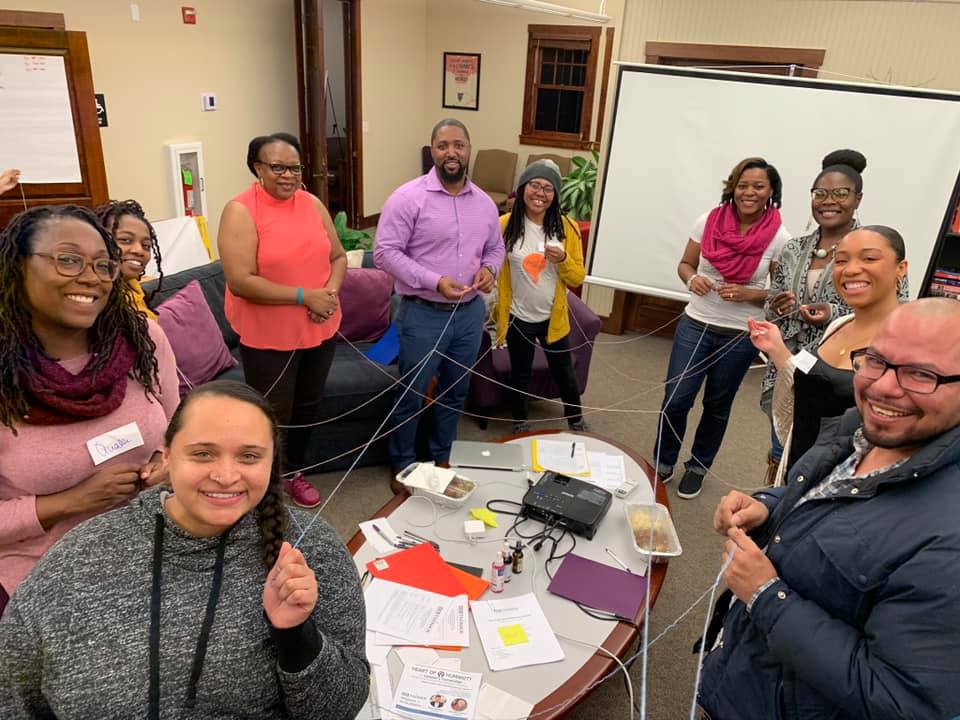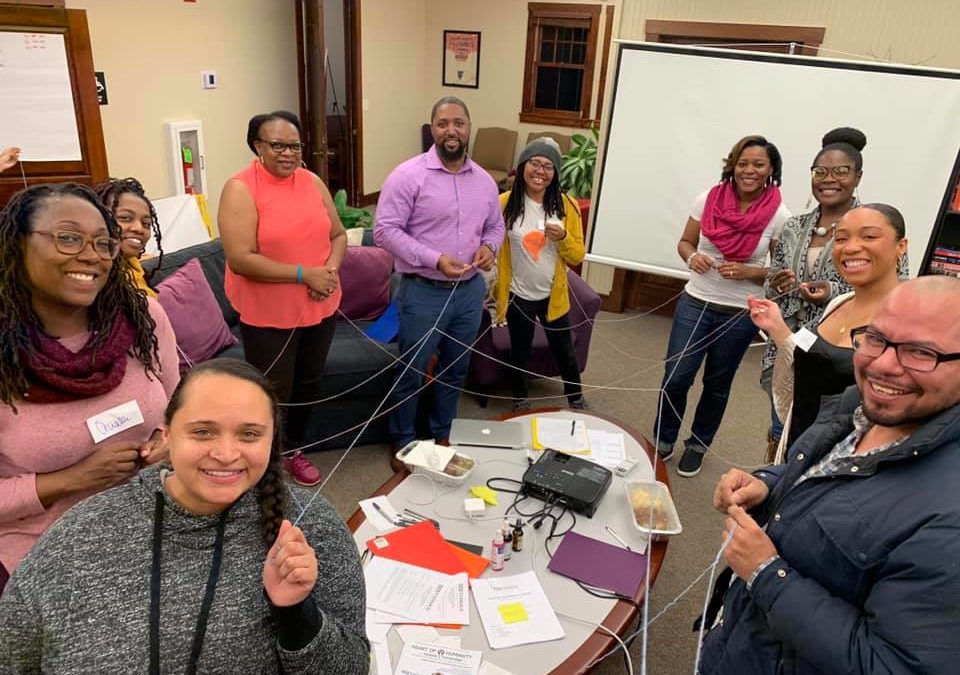
WHAT YOU RESIST WILL PERSIST: POWER MOVES ACROSS THE SOUTHEAST AND APPALACHIA
What you resist will persist is such a powerful frame to describe the complex, tedious and often exhausting dance that occurs between the national philanthropic sector and rural grassroots leaders who are moving transformational work with limited resources across the Southeast and Appalachia.
The very acknowledgement of this dance is shedding light on an important pain point: the historical and persistent underinvestment in movement work in Southern and Appalachian communities.
To disrupt this clumsy dance between funders and community requires an understanding that each partners’ success is intimately tied together and necessitates a level of proximity, trust and investment to move in a seamless way towards a shared line of sight.
What we know from the countless stories that we see play out over and over again in the region is that the philanthropic sector has struggled to fully commit to be a significant dance partner in our work to drive social change.
This struggle has been further fueled by a damaging and inaccurate national narrative that the Southeast and Appalachia drain the country’s resources – despite the fact that we are fueling the resistance.
A true depiction of our region is one of boldness and bravery, where diverse leaders are building intersectional movements that are centered in their relationships to people, place, culture and history:
-Coal workers are striking when their work goes unpaid by blocking the coal trains.
-Teachers are striking due to dire funding cuts.
-Indigenous peoples are leading climate change action.
-LGBTQIA+ and Black communities are fighting policies that undermine reproductive rights, policing and economic inequity.
-A growing immigrant population is bringing back economic prosperity to struggling rural areas.
The reality is that these movement leaders are influencing policies and systems change in a significant way despite underinvestment in their work.
These disparities in philanthropic support in the South are reflected in NCRP and Grantmakers for Southern Progress’s (GSP) 2018 publication As the South Grows: So Grows the Nation, which highlighted that, “Between 2011 and 2015, foundations nationwide invested 56 cents per person in the South for every dollar per person they invested nationally.”
NCRP and GSP further documented that funders provided 30 cents per person for structural change work in the South for every dollar per person nationally.
This research has amplified efforts by GSP and the Appalachia Funders Network, who are aligning national and regional funders, institutional partners and grassroots leaders to move significant resources in a catalytic way to support grassroots movements that are using innovative, progressive and impactful strategies across the region.
These groups are creating the necessary space to raise critical questions within and among the philanthropic community regarding the patterns, harm and implications of toggling in and out of unsustainable relationships with grassroots leaders in the South and Appalachia.
These collective efforts are converging at a critical moment of time where robust movements across the region are working in an intersectional way to drive social change.
Ultimately, the continuous cycle of underinvestment undermines our work and presents an urgent opportunity to strategically align investments to build on local momentum and spark national change.
And yet in the face of these facts, the work driven by grassroots leaders here persists and today’s Southern movement leaders are countering and interrupting underinvestment by using our collective social capital to re-imagine and move philanthropic power into the hands of the people who live and work here.
This decentralized form of philanthropy is fueling movements for justice and equity at the intersections of race, gender, class, sexual identity and immigration status.
We call this social change philanthropy: the intentional practice of centering communities that are most impacted, addressing systemic issues, naming inequities, creating equitable and inclusive practices, and celebrating innovation and creativity.
In our region, CoThinkk is a powerful example of a social change philanthropic model that is addressing complex challenges by amplifying the time, talent and treasure of African-American and Latinx community leaders and allies to shift narratives, deepen equity and drive systems change.
CoThinkk is a partner in a broader giving circle movement, Community Investment Network, anchored in the South, and its membership is comprised of a network of grassroot leaders, change agents, and organizations who care about the economic and social well-being of communities of color.
In this approach, grassroots communities are not waiting for permission. Instead, they are using philanthropy as a tool to move away from disempowering beliefs to powerful action, where people are shifting their own mindsets, tapping into their own power and wisdom, and moving powerful work.
This type of grantmaking has fostered pathways for African-American and Latinx leaders to run for local office, shift local policies, disrupt the status quo, and bring new and innovative solutions to the table. This is what equitable and inclusive grantmaking looks like in rural places.
As the philanthropic sector continues to sharpen its equity and inclusion lens, this focus must centralize equitable grantmaking in partnership with grassroots leaders in the Southeast and Appalachia.
Our dance must be on beat and in rhythm with each other to support the radical work that is happening here in service to driving social change so that everyone can thrive.
Tracey Greene-Washington is the founder of CoThinkk and president of Indigo Innovation Group. Mary Snow is a member of CoThinkk and president of Equitable Community Strategies. Follow @MsCoThinkk and @Mary_K_Snow on Twitter.
Photo by a CoThinkk member.

